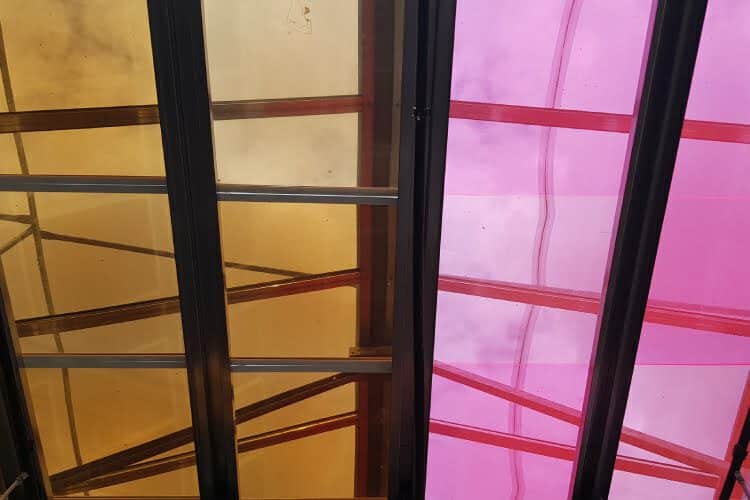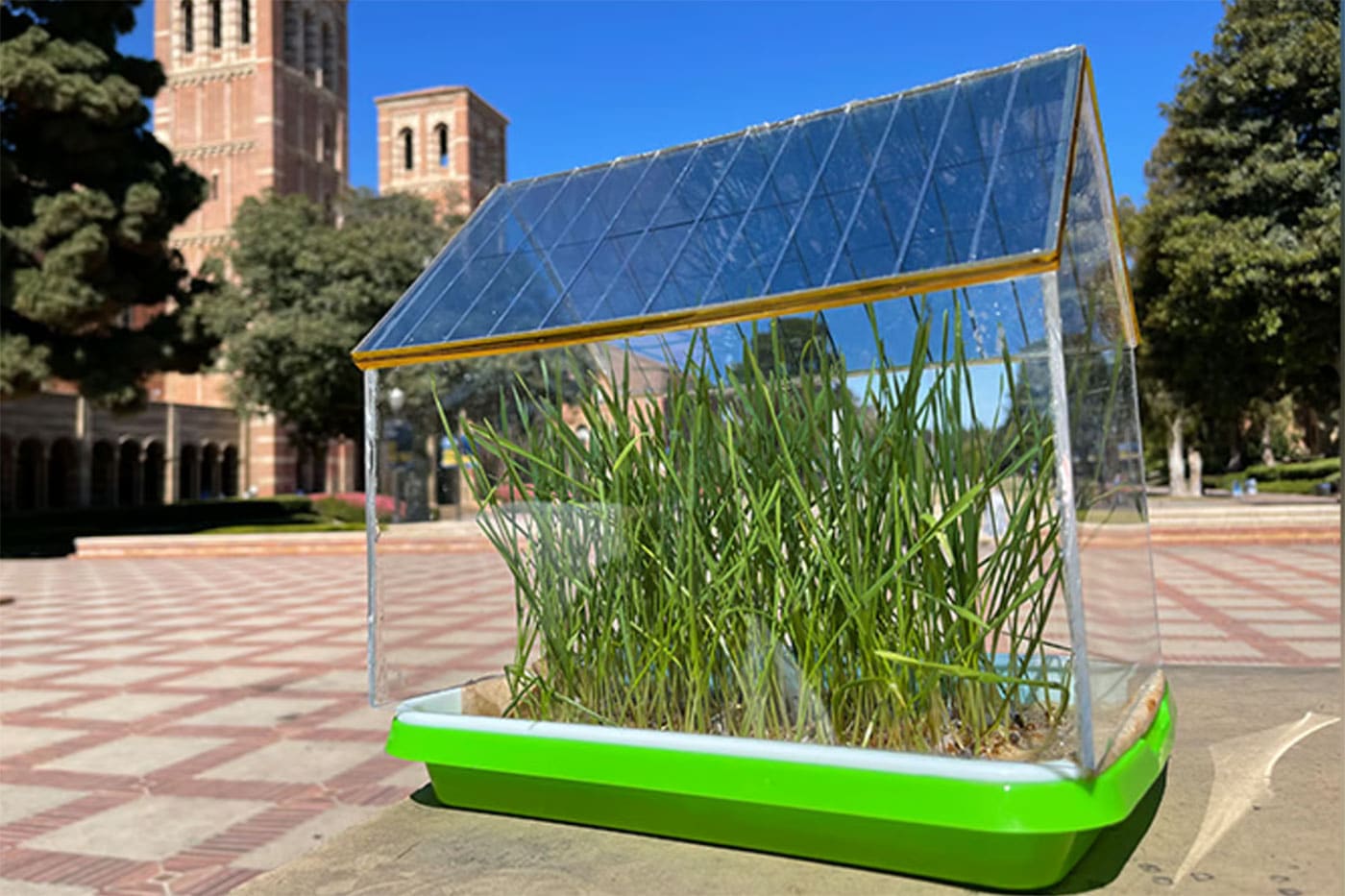The search for sustainable energy sources has led to the development of innovative technologies, such as semi-transparent organic solar cells, which offer many possibilities, including use on the roofs of ecological greenhouses.
Their adoption, however, has been held back by lack of knowledge of the technology and doubts regarding its impact on crops. Today, perhaps, the perception of the masses could begin to change. Researchers at the University of California, Los Angeles (UCLA) have shown that using these semi-transparent solar cells on a miniature greenhouse leads to surprisingly better plant growth than in a conventional greenhouse.
Semi-transparent, efficient. And stable.
There's more from the study just carried out and published in Nature (I link it here). A way to also overcome the "congenital" defect of organic solar cells, their poor stability. The team added a layer of a chemical called L-glutathione, which occurs naturally in antioxidant dietary supplements, and found that this solution prevented the degradation of the semi-transparent organic solar cells. Not only that, the L-glutathione layer blocked ultraviolet and infrared rays, which can harm plants and cause greenhouses to overheat. This, for all intents and purposes, is the turning point of the research.

“We didn't expect organic solar cells to outperform conventional greenhouses, but we repeated the experiments several times with the same results,” he says Yepin Zhao, lead author of the study. Furthermore, after further research and analysis, researchers discovered that plants do not need as much sunlight as initially thought. In fact, too much sun exposure can do more harm than good, especially in climates like California, where sunlight is more abundant. Therefore, thanks to organic solar cells, plants can grow better and healthier than excess sunlight. A surprising discovery that could change the way plants are grown in the future.
More details on the results
The test results showed that the semi-transparent organic solar cells with the protective layer of L-glutathione maintained an efficiency greater than 80% after 1.000 hours of continuous use. Without this layer they are gone less than 20%. Important figures, which warrant enthusiasm: the same researchers have created a startup at UCLA, which wants to bring these semi-transparent organic solar cells to an industrial scale.
In other words: ecological and solar greenhouses are definitely about to make their way. New life for agrivoltaics, gentlemen. Does anyone still doubt it?


